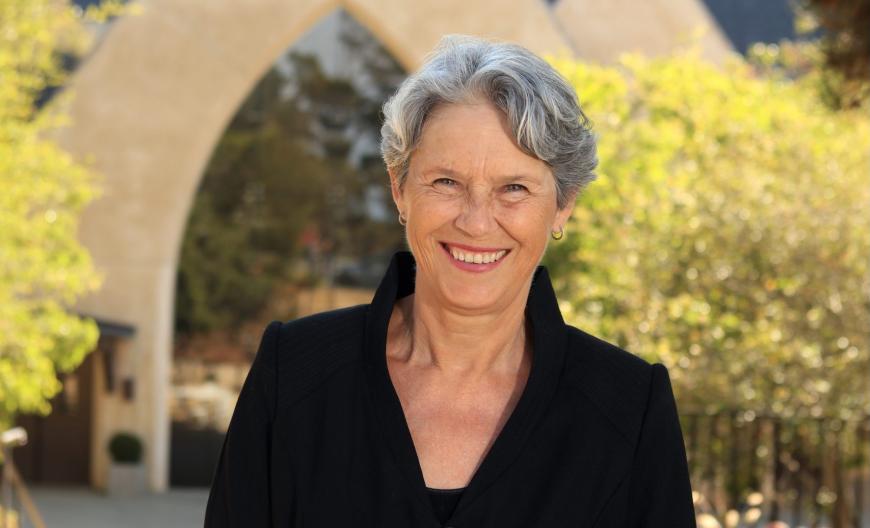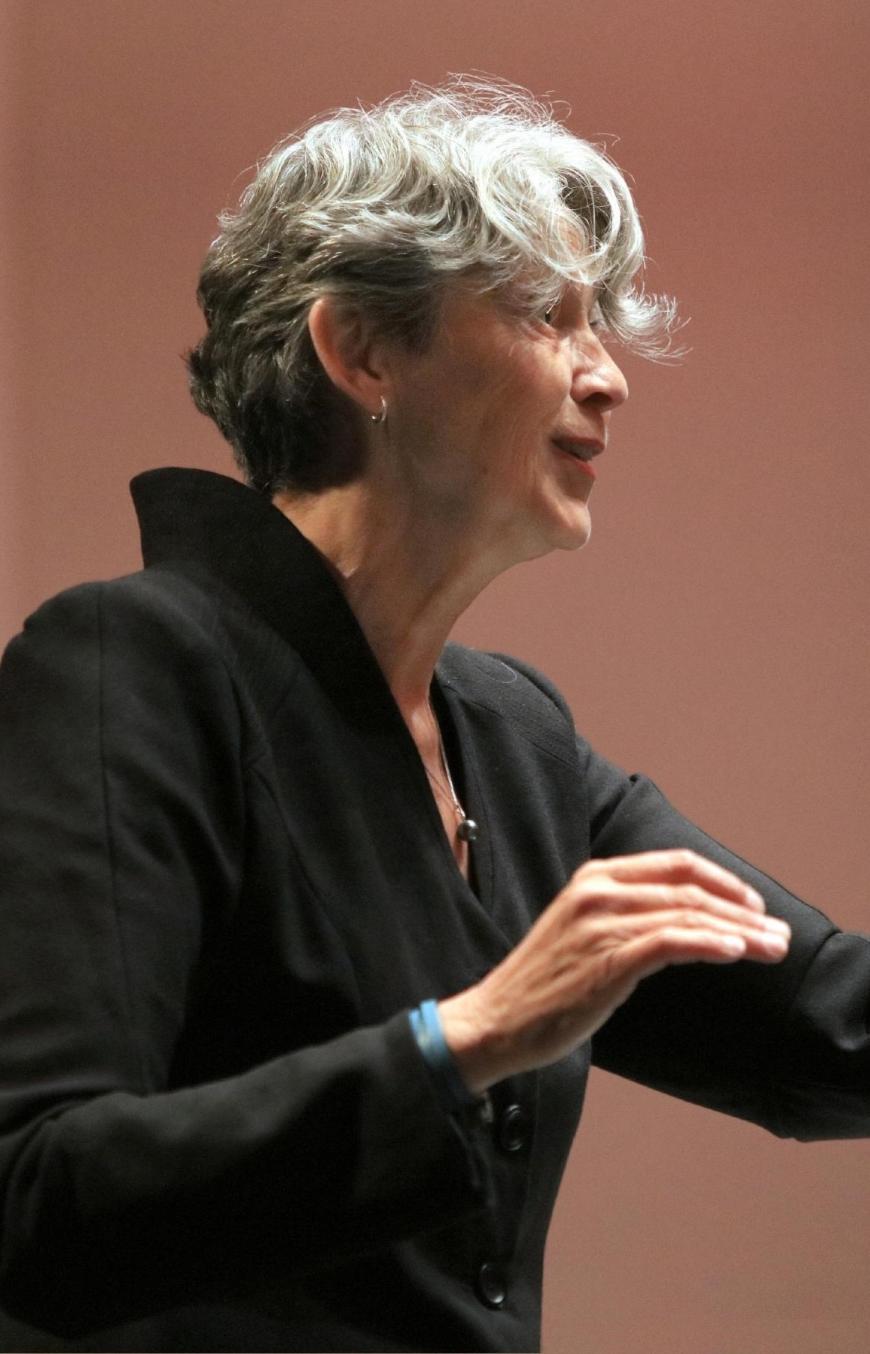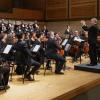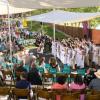
The Carmel Bach Festival is breaking new ground in 2023 with a theme of “beginnings” and the arrival of Artistic Director and Principal Conductor Grete Pedersen, the first woman and only sixth artistic director to lead the festival in its 87-year history. What began modestly in 1935 as a four-day series of performances in Carmel-by-the-Sea has grown into a two-week event with concerts, recitals, master classes, lectures, open rehearsals, and more.
Pedersen was born in Sarpsborg, Norway, and studied at the Norwegian Academy of Music. She founded and worked for 20 years with the Oslo Chamber Choir, developing a rich oratorio repertoire and, as an energetic proponent of new music, championing contemporary works. Since 1990, she has served as musical director of The Norwegian Soloists’ Choir. She is currently a professor of conducting at the Norwegian Academy of Music. Widely recognized for innovative programming and commissioning, she has presented living composers in dialogue with masters such as Bach and Haydn. She also seeks opportunities to honor Norwegian folk music, while adding new artistic perspectives and developing large-scale projects for choir and orchestra.
Pedersen spoke about the 2023 Carmel Bach Festival (which runs through July 29), her approach to her new position there, and her outlook generally.

The composers whose works have been selected for the festival, Pedersen says, express a dedication to their craft without the end result becoming sterile or conformist. Referencing the work of Helmut Friedrich Lachenmann, whose music is paired on the “Bach Dialogues” program (July 18 and 25) with Bach’s Magnificat in D Major, she says, “There is a feeling of a composer who has clear intention behind his writing. It’s not impressionism. It’s clear, like a Renaissance painting with pure lines. … What is on paper and the sound he wants to get out of it is clear. At the same time, it is spiritual, which is another dimension. It has depth.”
Form is also ever-present. “All of these composers in the festival [understand the] instruments [they are writing for], whether it’s a voice or a violin or anything else. They know the voices they are writing for, so it feels natural, although it’s also sometimes abrupt, like with Haydn, who you think is going to the right then suddenly turns to the left. But you always feel the music is mature. You are never lost.”
The “Bach Dialogues” performances let Pedersen showcase one of her favorite approaches to programming. “I love when you have composers talking to each other. We know these composers knew the music of Bach. It is like the composers are standing next to each other. They are going back and forth in history and looking forward to what is new. We are lucky because we can listen to all of it at once.”
Concerts July 21 and 28 include Swedish composer Karin Rehnqvist’s Breaking the Ice. “This piece she wrote in the Arctic in Canada, and you can hear the breaking of the ice,” says Pedersen. “And then we go to Blumine by [Gustav] Mahler, who wrote this incidental music and didn’t at first like it and took it in and out of his First Symphony. After a break, we follow with a more mature Mahler, the Symphony No. 4 in G Major.”
About Haydn’s The Creation, which fills the program on July 22, Pedersen says it’s noteworthy that Haydn composed this oratorio after he had finished his last symphonies. “It was at the end of his career. He was fascinated by Handel’s Messiah. The Creation was the first piece in music history where people understood that this piece by Haydn would last. He became like a pop star of his time, and they played it every year after the premiere.”
In her new position, Pedersen applies certain leadership philosophies, and she voices profound respect for musicians’ sacrifices for their art. “I want them all to bloom and shine individually. At the same time, with a choir and orchestra, there must be blending. There is always the individual, but also, they are team players. I like that these musicians come forward and are not shy. It’s a process of building something together, and so much of our time is the rehearsal period, compared to how much time there is performing onstage. To make that rehearsal time fulfilling creates good energy and moves us forward.”
Pedersen says there is no specific female conductor who has inspired her career in what is still a male-dominated field. Instead, she points to musicians who have reminded her that the greatest priority is to be true to yourself. “As a female conductor, it is the only thing I know. People say to me, ‘Oh, you are the first woman conductor working with us.’ The only thing I must do is find a way to be a leader and not pretend to be someone else. For me, most important is believing in the music. I am an advocate for the music and for allowing the musicians to grow. I hope the music in the end communicates and gives new understanding and experiences to the audience.”




